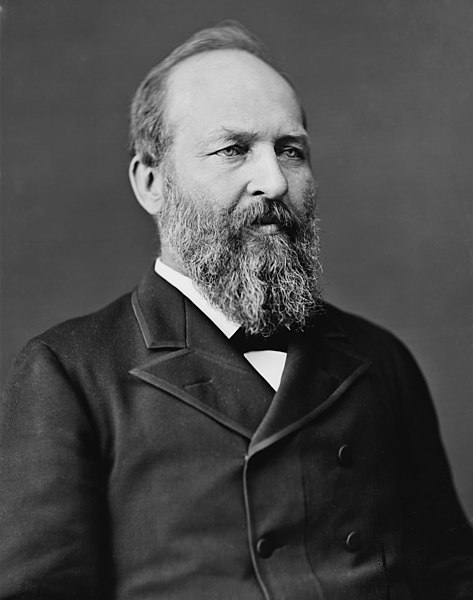The Curse of Tippecanoe is an urban legend about the deaths in office of presidents of the United States who were elected in years divisible by 20. According to the legend, Tenskwatawa, leader of Native American tribes defeated in 1811 at the Battle of Tippecanoe by a military expedition led by William Henry Harrison, had cursed the "Great White Fathers".
William Henry Harrison, nicknamed Old Tippecanoe, died just a month after taking office in 1841. His death is the first attributed to the Curse of Tippecanoe.
Image: William Henry Harrison daguerreotype edit
Image: Abraham Lincoln O 77 matte collodion print
Image: James Abram Garfield, photo portrait seated
Tecumseh's War or Tecumseh's Rebellion was a conflict between the United States and Tecumseh's Confederacy, led by the Shawnee leader Tecumseh in the Indiana Territory. Although the war is often considered to have climaxed with William Henry Harrison's victory at the Battle of Tippecanoe in 1811, Tecumseh's War essentially continued into the War of 1812 and is frequently considered a part of that larger struggle. The war lasted for two more years, until 1813, when Tecumseh and his second-in-command, Roundhead, died fighting Harrison's Army of the Northwest at the Battle of the Thames in Upper Canada, near present-day Chatham, Ontario, and his confederacy disintegrated. Tecumseh's War is viewed by some academic historians as the final conflict of a longer-term military struggle for control of the Great Lakes region of North America, encompassing a number of wars over several generations, referred to as the Sixty Years' War.
Battle of Tippecanoe
Shawnee Chief Black Hoof (Catecahassa) was a staunch opponent of Tecumseh's confederation and an ally of the United States in the War of 1812.
Tenskwatawa, by Charles Bird King
At Vincennes in 1810, Tecumseh loses his temper when William Henry Harrison refuses to rescind the Treaty of Fort Wayne.







